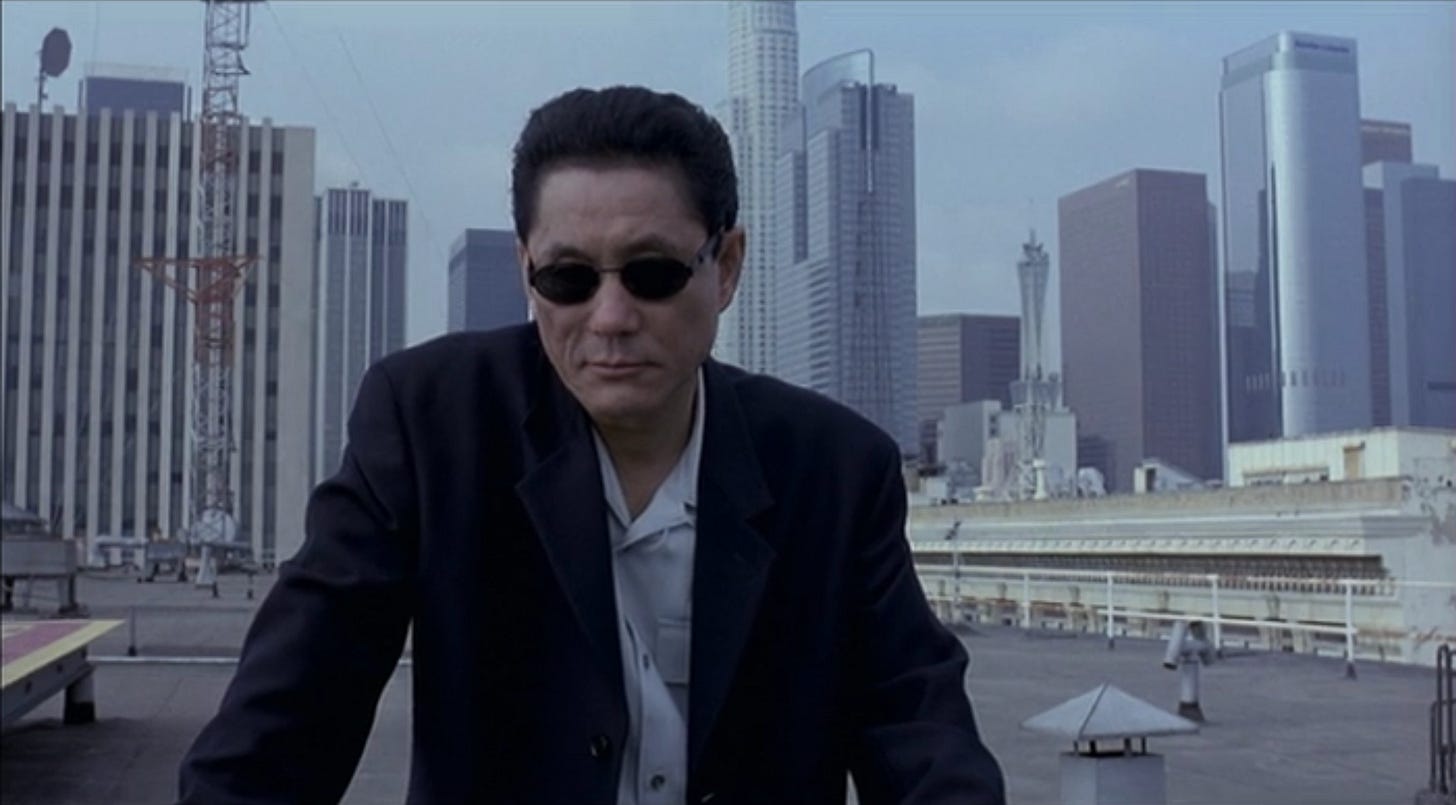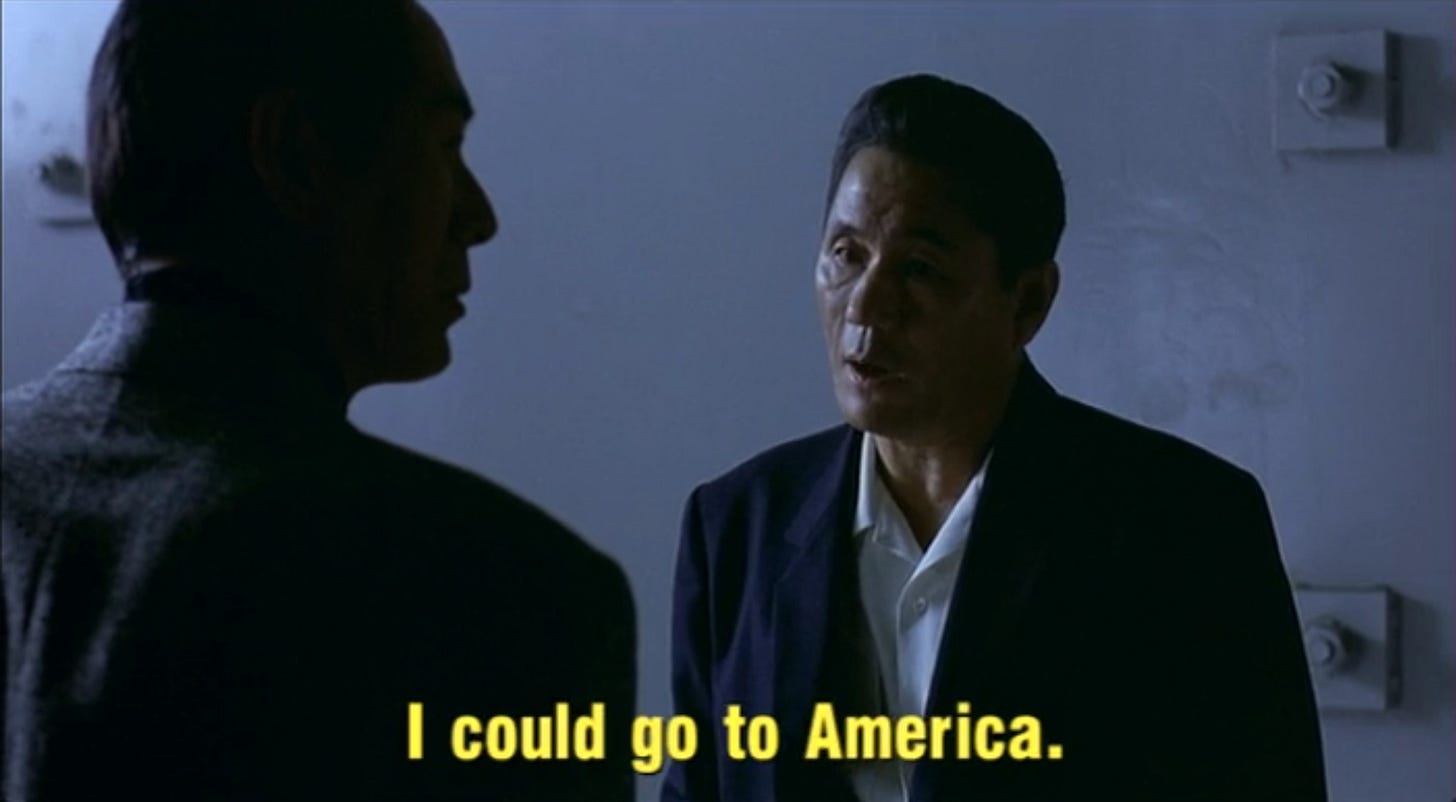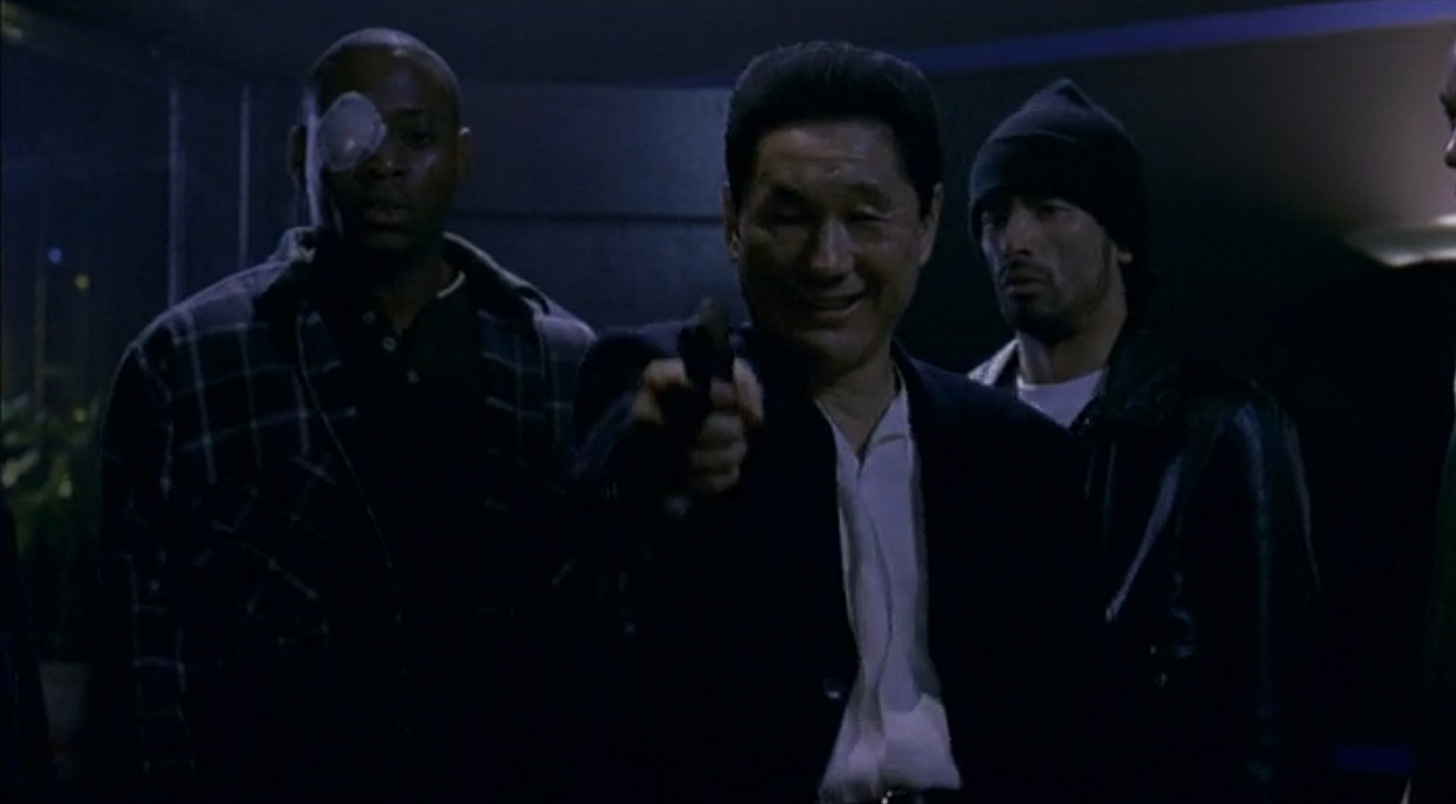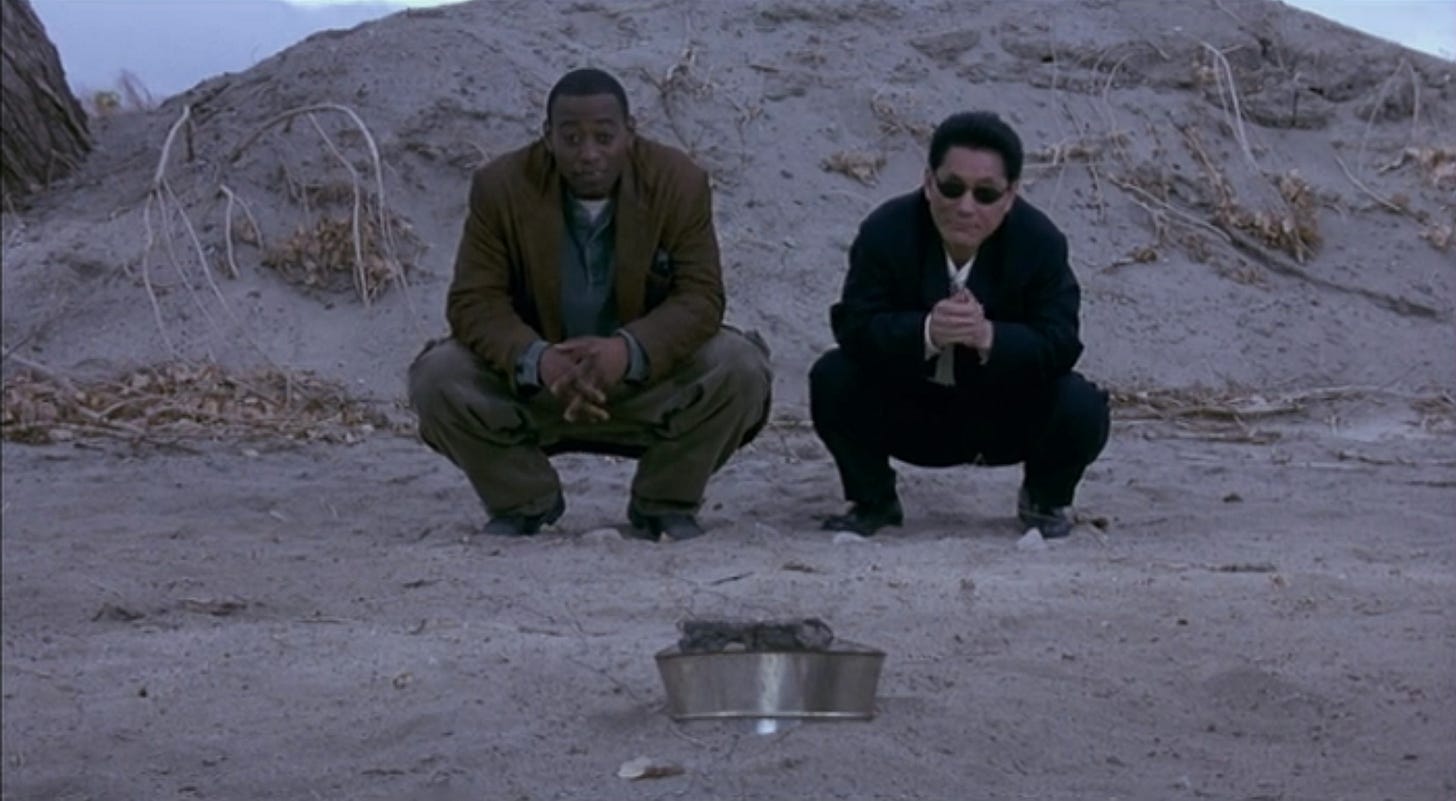Hi, I’m Bryan and this is my newsletter, Beat Happenings. Each installment focuses on Japanese comedian, TV host, actor, and filmmaker Takeshi Kitano, a.k.a. Beat Takeshi, and one of his yakuza films. This week, Kitano’s sole English-language film, Brother.

Beat Takeshi in Brother (2000)
By the end of the millennium, and his first decade as a director, Takeshi Kitano had reached the peak of Japanese cinema. Although audiences and critics in his home country had been skeptical of his first films, they’d come around by the time the Golden Lion-winning Hana-bi hit theaters in early 1998. Now mentioned among the likes of Akira Kurosawa and Yasujirō Ozu, Kitano had the power and freedom to do whatever he wanted. So he decided to make a movie in America.
Thanks to Sonatine, critics and cinephiles outside of Japan had caught on to Kitano’s talents years before his countrymen. And because of this, the director had already been toying around with the idea of setting one of his films outside of Japan when British producer Jeremy Thompson asked him if he was interested in doing just that over dinner during the late ’90s. Thompson promised Kitano complete creative control and soon after, his fifth yakuza movie, Brother, began to take shape.

In the resulting film, Kitano plays Yamamoto, an older but not past-it gangster, whose yakuza family has just been wiped out by their rivals. Given the choice to chop off his finger and pledge his loyalty to the enemy or commit seppuku, he instead opts to flee Tokyo and head to Los Angeles where his estranged half-brother, Ken (played by Claude Maki), lives. It’s unclear if Yamamoto was planning on going straight, but he quickly transforms his bumbling younger sibling and his group of friends (one of whom is played by Omar Epps) into a brutally efficient gang that’s able to wrest control of the city’s drug trade away from a group of Eastern European-sounding “cholos.” But that’s not enough for Yamamoto’s crew, who continue to expand their power and reach until they end up pissing off the mafia. Needless to say, this turns out to be a deadly mistake.
Kitano is said to have wanted Brother to be a traditional yakuza film, only set outside of Japan. And that’s exactly what it is for the first hour, during which Yamamoto arrives in LA and calmly ascends to the top of the city’s criminal underworld. But then he just sort of disengages from his burgeoning empire. The plot keeps chugging along, of course, with the crew adding a crazed Little Tokyo crime lord to its ranks, but Yamamoto recedes, spending more and more of his time with his girlfriend or on the roof of the gang’s headquarters staring off into the distance. It’s almost as if he’s come to realize just how pointless it all is. Regardless, with his attention elsewhere, everything around him begins to go up in flames.

But it’s not just Yamamoto who seems to have grown jaded with what’s happening in Brother, but Kitano himself. The movie has many of the trademarks of his earlier films—wry jokes, gangsters filling their time with childlike games, and lots of violence—but something’s clearly missing. The movie fails to ever really cohere into anything and is completely devoid of the quick bolts of beauty that made Sonatine and Hana-bi so memorable. It’s almost as if in attempting to make a film that was both Japanese and American, Kitano got stuck and decided to just cut his losses. This is best seen in the relationship between Yamamato and the barely sketched out Denny, played by Epps. The two form the closest thing in the film to a bond, but it’s unclear why, especially since the only thing they have in common is a love of low-stakes gambling. When the two drive out to the desert for the film’s final confrontation, there’s really no reason for Denny to be there other than that Epps was the most recognizable name on the bill to western audiences. And even then, Kitano quickly finds a way to get rid of him, so he can finish things off the same way he always does.
So was it Brother that Kitano grew bored with or yakuza films themselves? Considering that it would take him another seven years to return to the genre, my money’s on the latter. But when he finally did return, the resulting movie, Outrage, was easily his best work in a decade. But more on that next week.

That’s it for the fifth installment of Beat Happenings. Next issue, I’ll be writing about Kitano’s return to form, Outrage. If this week’s issue has piqued your interest at all, you can rent Brother on Amazon Video, iTunes, and YouTube Movies. In the meantime, I’d love to hear any comments or suggestions you may have about the newsletter. Just reply to this email and let me know what you think.


